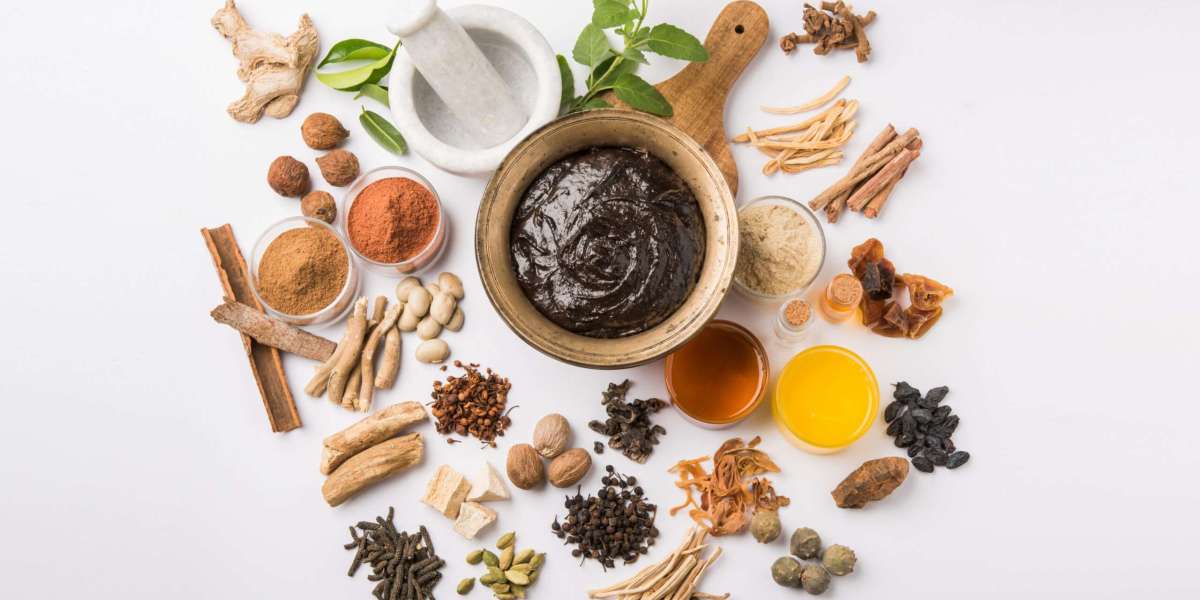Your liver is one of the hardest-working organs in your body, processing everything you eat and drink while filtering out harmful substances. In today's world of processed foods, environmental pollutants, and daily stressors, supporting your liver's natural detoxification processes has never been more important. While many "detox" approaches make exaggerated claims, emerging research points to a fascinating connection between gut health, probiotics, and liver function. Let's explore how a healthy gut microbiome can support your liver's vital work.
Understanding the Gut-Liver Axis
The gut and liver are directly connected through what scientists call the "gut-liver axis." This bidirectional communication system means that the health of your gut directly impacts liver function and vice versa. Your intestines absorb nutrients from food and send them directly to the liver via the portal vein for processing. The liver then filters the blood from the portal vein to remove toxins, before this nutrient-rich blood is transported to the rest of the body. Your gut barrier helps prevent harmful substances from entering the bloodstream, reducing the liver's detoxification burden. The liver produces bile to aid digestion, which is then recycled through the intestines and liver in the enterohepatic circulation. Both organs communicate through immune messengers, influencing inflammation throughout the body.
When this system functions optimally, your liver can efficiently perform its detoxification duties. However, our modern lifestyle, including ultra-processed foods, frequent alcohol consumption, certain medications and ongoing exposure to environmental toxins can overburden the liver. Gut imbalances can further disrupt this harmony, potentially overwhelming your liver with additional toxins and inflammatory signals.
How Gut Imbalances Affect Liver Health
Several gut-related issues can place extra stress on your liver. When your intestinal barrier becomes compromised, larger particles—including toxins, undigested food, and bacterial components—can enter your bloodstream. This increased permeability forces your liver to work harder to filter these unwanted substances.
Imbalances in gut bacteria (dysbiosis) can lead to the overproduction of compounds like ammonia, ethanol, and acetaldehyde that must be processed by the liver, adding to its workload. Harmful bacteria release endotoxins (particularly lipopolysaccharides or LPS) that, when absorbed into the bloodstream, can trigger liver inflammation and potentially contribute to liver disease progression.
In addition, when the gut microbiome is out of balance, this can lead to inflammation in the intestines. When our gut gets inflamed, this often results in “leaky gut” - a condition where our gut barrier becomes leaky. In a healthy gut, tight junctions between intestinal cells act as a barrier, preventing harmful substances from entering the bloodstream. However, when these junctions loosen, toxins, undigested food particles, and harmful bacteria can pass through and enter the bloodstream, eventually making their way to the liver. The liver must then work overtime to detoxify these substances, which can lead to inflammation, oxidative stress, and impaired liver function over time. Addressing leaky gut is essential for reducing liver overload and maintaining optimal metabolic health.
How Probiotics Support Liver Detoxification
Probiotics offer several mechanisms to support your liver's natural detoxification processes. Certain probiotic strains help maintain and restore the integrity of your intestinal lining. By reinforcing this crucial barrier, probiotics help prevent toxins from leaking into your bloodstream, reducing the liver's detoxification burden. Research has shown that probiotics likeLactobacillus rhamnosusandBifidobacterium longumcan help strengthen tight junctions—the proteins that seal the spaces between intestinal cells—creating a more effective barrier against harmful substances.
Beneficial bacteria help crowd out harmful microbes that produce toxins your liver must process. By promoting a healthier gut microbiome, probiotics can help reduce the production of ammonia, endotoxins, and other compounds that stress liver function. A study published in Frontiers in Medicine found that certain probiotic strains reduced blood levels of ammonia and other bacterial toxins in patients with liver conditions, demonstrating their potential to reduce the liver's toxic load.
Healthy gut bacteria play a crucial role in bile acid metabolism. Probiotics can help support proper bile flow, prevent bile stagnation, assist in converting primary bile acids to secondary bile acids, and enhance the elimination of toxins through bile. This improved bile function helps your liver more efficiently remove waste products and toxins from your body.
Chronic inflammation taxes your liver and impairs its function. Certain probiotic strains have anti-inflammatory properties that can help calm systemic inflammation, creating a more favorable environment for optimal liver function. Research has demonstrated that specific probiotic formulations can lower inflammatory markers like TNF-α and IL-6, which are often elevated in liver conditions.
Your liver requires numerous nutrients to power its detoxification pathways. Probiotics improve the absorption of B vitamins necessary for methylation (a key detoxification process), antioxidants that protect liver cells from damage, and zinc, selenium, and other minerals required for detoxification enzymes. This enhanced nutritional status helps your liver perform its complex detoxification chemistry more efficiently.
Omni-Biotic Hetox: Clinically Proven Probiotic for Liver and Metabolic Health
Omni-Biotic Hetox is a scientifically formulated probiotic designed to support the gut-liver axis, which plays a crucial role in maintaining liver health and metabolic function. This unique blend contains specifically selected bacterial strains that have been shown to strengthen the intestinal barrier, reduce inflammation, and support metabolic health.
A clinical study with Omni-Biotic Hetox has shown significant improvements in cardiometabolic markers, including significant improvements in endotoxin levels, triglyceride levels, and C-reactive protein levels. By addressing the root causes of liver overload, such as leaky gut and microbial imbalance, Omni-Biotic Hetox offers targeted support for those looking to enhance liver health and reduce systemic inflammation.
Beyond Probiotics: Complete Gut Support for Liver Health
While probiotics are valuable, a comprehensive approach to gut-liver health should include additional supportive elements. Prebiotics are non-digestible fibers that feed beneficial bacteria, helping them thrive and multiply. Good sources include Jerusalem artichokes, dandelion greens, garlic and onions, asparagus, slightly under-ripe bananas, and oats.
Certain nutrients play key roles in liver detoxification, including glutathione precursors (found in cruciferous vegetables, garlic, and whey protein), milk thistle (silymarin), N-acetyl cysteine, B vitamins, and antioxidants like vitamin C and E.
Adequate water intake and dietary fiber support toxin elimination through regular bowel movements, bile flow, and preventing toxin reabsorption.
Practical Tips for Supporting Your Gut-Liver Connection
To optimize the gut-liver axis for better detoxification, consider incorporating these practical strategies into your daily life. Natural sources of probiotics include plain yogurt with live cultures, kefir, sauerkraut, kimchi, and low-sugar kombucha varieties. Try adding one serving of fermented foods daily to support your gut microbiome.
Reduce liver burden with an anti-inflammatory diet rich in leafy greens, fatty fish, berries, turmeric, olive oil, and nuts and seeds. These foods help combat inflammation while providing nutrients that support liver function.
Processed foods and added sugars can promote harmful bacteria growth and inflammation, adding stress to both your gut and liver. Reducing these in your diet can significantly lighten the load on your detoxification systems.
Some research suggests that periodic fasting may support liver function and beneficial bacteria by giving your digestive system time to rest and repair. If appropriate for your health situation, consider exploring intermittent fasting under proper guidance.
Chronic stress affects gut function and can impair liver detoxification. Consider incorporating stress-reduction practices like meditation, deep breathing, or gentle yoga to support both gut and liver health.
Reducing Environmental Toxins and Limiting Alcohol Consumption
In addition to dietary and lifestyle changes, reducing your exposure to environmental toxins can greatly benefit liver and gut health. Many environmental toxins—such as pollutants in the air, chemicals in the water we drink, and pesticides on produce—can strain the liver’s detoxification capacity. Filtering your drinking water to remove heavy metals, chemicals, and chlorine can help reduce this burden. Opting for organic produce when possible also limits your exposure to harmful pesticides, supporting both liver function and gut health.
Alcohol consumption is another significant factor that taxes the liver and disrupts the gut microbiome. Excessive drinking not only increases the liver's workload by requiring it to process alcohol but also causes imbalances in the gut microbiota, contributing to conditions like leaky gut. Limiting alcohol intake and choosing alcohol-free days can reduce its impact on your liver and gut, promoting better overall detoxification and health.
Who Can Benefit from Probiotic Liver Support?
While most people can benefit from supporting their gut-liver connection, those in certain situations may find it particularly valuable. Omni-Biotic Hetox is beneficial for anyone looking to support liver function and metabolic health. This includes individuals whose lifestyle is taxing on the liver, such as eating out a lot, eating a diet high in processed, fatty foods, or drinking alcohol frequently. Additionally, people looking to proactively support their metabolic health, reduce systemic inflammation, or enhance detoxification processes may find Omni-Biotic Hetox particularly valuable. Whether for everyday wellness or targeted liver support, this probiotic blend helps strengthen the gut barrier and reduces liver overload.
Conclusion
The connection between gut health and liver function represents an exciting area of health research with practical implications. By supporting your gut microbiome through probiotics and other gut-friendly practices, you can help optimize your liver's natural detoxification capabilities.
Remember that true "detoxification" isn't about quick fixes or extreme measures—it's about supporting your body's innate detoxification systems, particularly your liver, through consistent healthy choices. A balanced approach that includes probiotics, whole foods, adequate hydration, and stress management provides the foundation for optimal gut-liver health.
If you're considering incorporating probiotics for liver support, particularly if you have existing liver concerns, it's always wise to consult with a healthcare provider who can offer personalized guidance based on your specific health needs.
Disclaimer: This article is for informational purposes only and should not be considered medical advice. Always consult with healthcare professionals before starting any new supplement regimen, especially if you have underlying health conditions.


